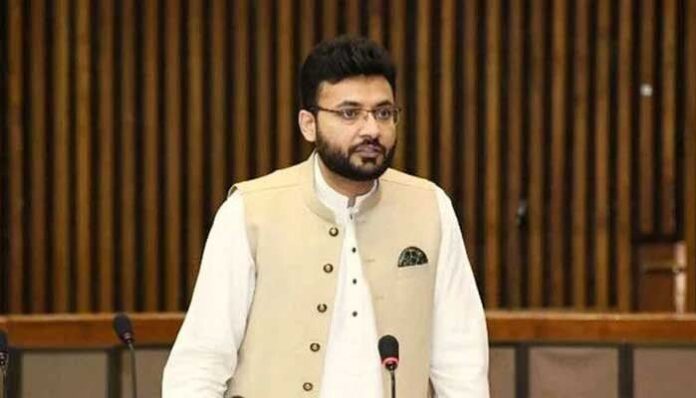Farrukh Habib a senior leader of the Pakistan Tehreek-e-Insaf (PTI), announced his departure from the party and joined the Istehkam-e-Pakistan Party (IPP), a new political entity led by estranged PTI leaders Jahangir Tareen and Aleem Khan. This move comes in response to Habib’s expressed discontent with the policies of former Prime Minister Imran Khan, particularly those that led to the events of May 9.
Habib’s decision to join the IPP was revealed during a press conference held at the party’s Lahore headquarters, where he was accompanied by the top leadership of the Istehkam Party. During the conference, Habib voiced his condemnation of the events that occurred on May 9, referring to them as a “dark day” in Pakistan’s history.
Having been a pioneer member of PTI’s student organization, Habib expressed his disillusionment, stating, “I wasn’t at my house for the past five months, and for the last few weeks, I wasn’t even in contact with my family.” The former state minister for information highlighted the challenges faced since May 9, emphasizing that he had continually questioned whether his entry into politics had been for such outcomes.
Habib’s departure from PTI follows the recent exit of two prominent leaders, Sadaqat Ali Abbasi and Usman Dar, who parted ways with the former ruling party due to the May 9 events.
The events of May 9, which led to the arrest of PTI Chairman Imran Khan in a graft case, had triggered nationwide protests by the party, resulting in damage to state installations. Subsequently, a crackdown was launched against those involved, resulting in the arrest of hundreds of PTI workers and leaders, including Vice Chairman Shah Mehmood Qureshi.
Farrukh Habib criticized Imran Khan’s narrative, asserting that PTI’s confrontation with state institutions was not a struggle between believers and non-believers, but rather a dispute that had brought the country dangerously close to violence.
During the press conference, Habib emphasized that Imran’s government had been removed through constitutional means via a no-confidence motion supported by the Pakistan Democratic Movement. However, the former prime minister did not accept this outcome, attributing his removal to a supposed “conspiracy” backed by the United States.
Habib further commented on the period following the no-confidence vote, stating that Imran Khan had not allowed his party members to function peacefully. Instead of adhering to the rule of law, Imran had pursued a policy marked by violence.
Farrukh Habib lamented the deviation from the ideal of creating a Pakistan in line with Quaid-e-Azam’s vision. Instead, he observed a growing disconnect from that vision and questioned the methods being employed.
Habib also touched upon the cipher case, noting that a joint statement was issued during Imran’s tenure by the National Security Committee, which asserted that there was no conspiracy, but rather an intervention. He criticized Imran for exploiting this statement for his political advantage at the expense of national interests.
Imran Khan, who was initially arrested in a graft case in May, remains in custody as he faces charges related to the disclosure of details from a classified document.
Habib also raised concerns about the Toshakhana case, where Imran Khan was disqualified by the Election Commission of Pakistan. He questioned the former PTI chairman’s acceptance of watches from the Toshakhana while claiming high moral ground, suggesting that transparency was needed from the outset.
Farrukh Habib’s decision to leave PTI and join the Istehkam Party signifies a significant shift in Pakistani politics. This move comes in light of his disagreement with Imran Khan’s policies and the events of May 9. Habib’s departure underscores the evolving dynamics in the country’s political landscape.


